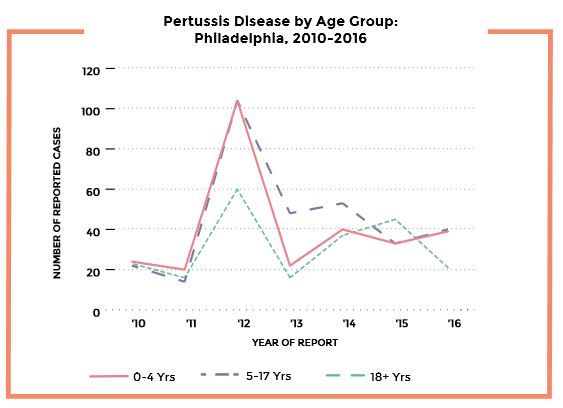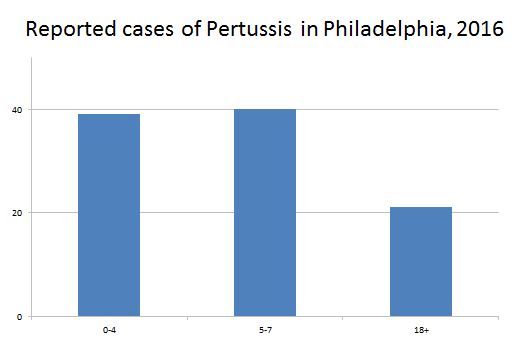Philadelphia: Disease Data
Vaccine-preventable diseases
These data are from the 2016 Division of Disease Control Annual Report. The annual report for 2017 will be released Summer 2018.
The Philadelphia Department of Public Health tracks vaccine-preventable diseases in Philadelphia. Key diseases are:
- Chicken pox (varicella zoster virus)
- Shingles
- Meningococcal disease
- Pertussis
There are many other vaccine-preventable diseases, like measles, mumps, and others. However, we often don’t report data on these because they are extremely rare and manifest in outbreaks rather than steadily changing trends.
Chicken Pox
Chicken pox is caused by the varicella zoster virus. It creates an itchy, unpleasant rash all over the body, and is extremely contagious: it’s easily spread by coughing or sneezing, and people can spread the disease before they know they have it. And, it can cause several dangerous complications like pneumonia, inflammation of the brain, or bacterial infections. Fortunately, the varicella vaccine protects most people from the disease.
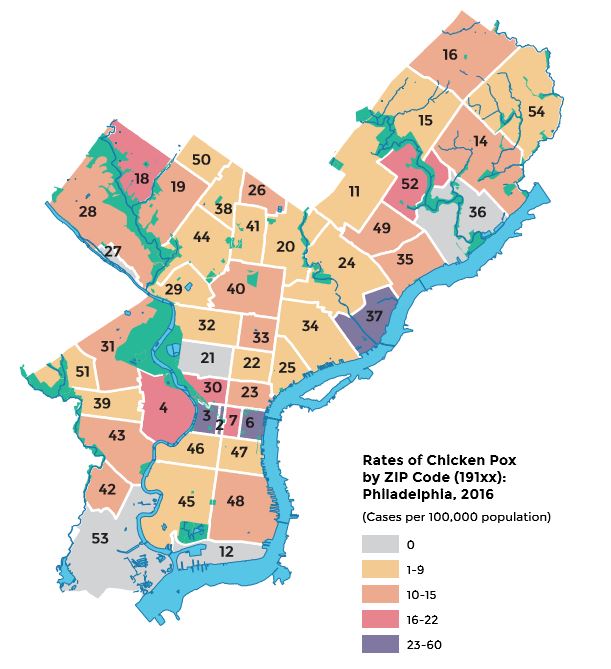
In 2016, there was a chicken pox outbreak in a pre-school. During this outbreak:
- 6 children were sick with chicken pox
- 5 of those 6 children were unvaccinated because of religious or philosophical exemptions to school vaccine requirements
- 26 other unvaccinated students were excluded from school for 21 days so that they would not catch and spread the disease
- 3 students returned to school after they received a dose of the vaccine
Shingles
Shingles is also called herpes zoster, and results in a painful skin rash. Shingles tends to affect older people with suppressed immune systems. Fortunately, the vaccine greatly reduces the risk of getting shingles. Data for Philadelphia shows more cases of Shingles in older adults.
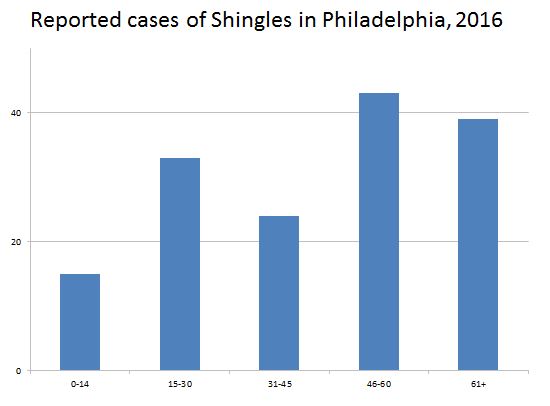
Meningococcal disease
Meningococcal disease is an infection caused by a type of bacteria. It can be deadly if it’s untreated. Fortunately, there are very few reported cases of Meningococcal disease in Philadelphia.
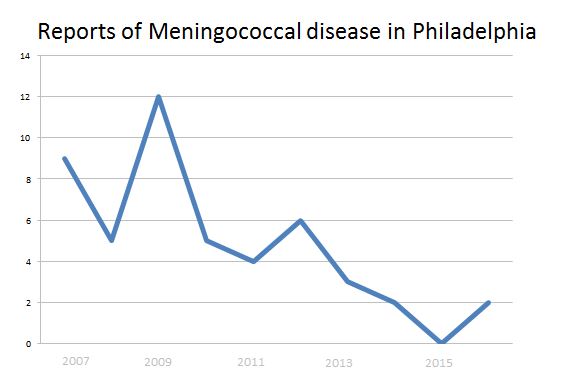
Pertussis
Pertussis is also called “whooping cough.” It’s caused by a bacteria, and while it initially seems like the common cold, it can last for up to 10 weeks. The disease’s uncontrollable coughing can result in vomiting, broken ribs, and severe fatigue – and is especially dangerous for babies and small children, who can stop breathing entirely.
